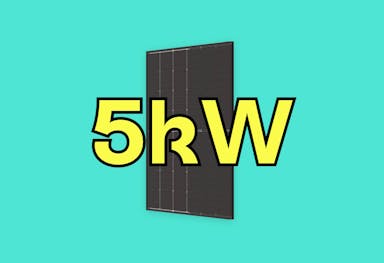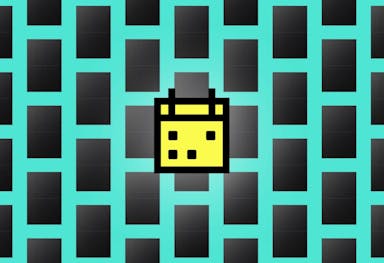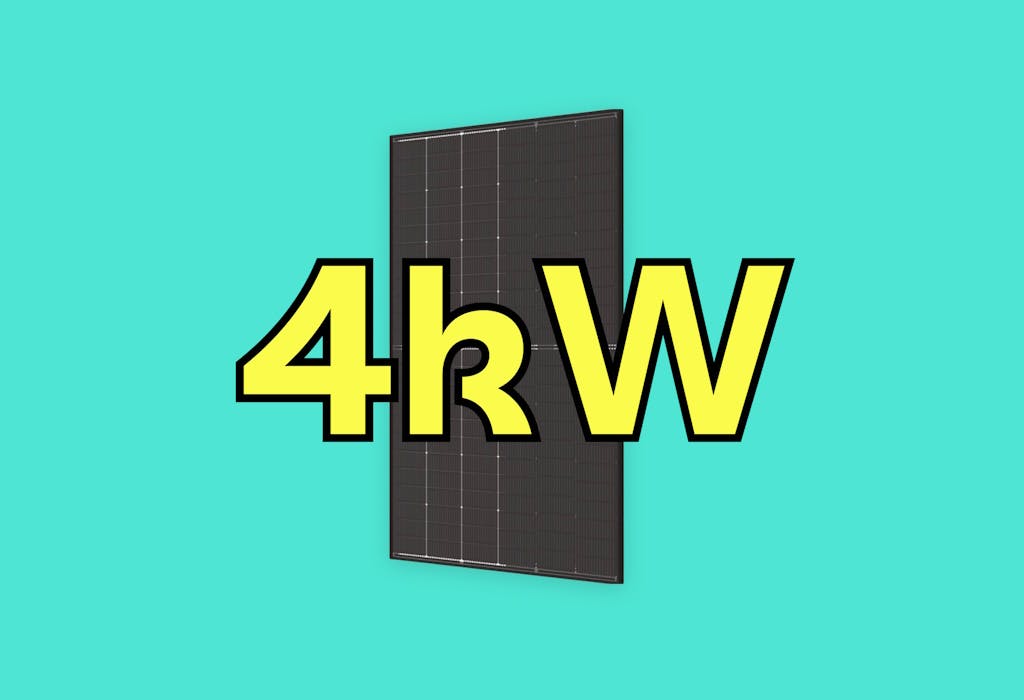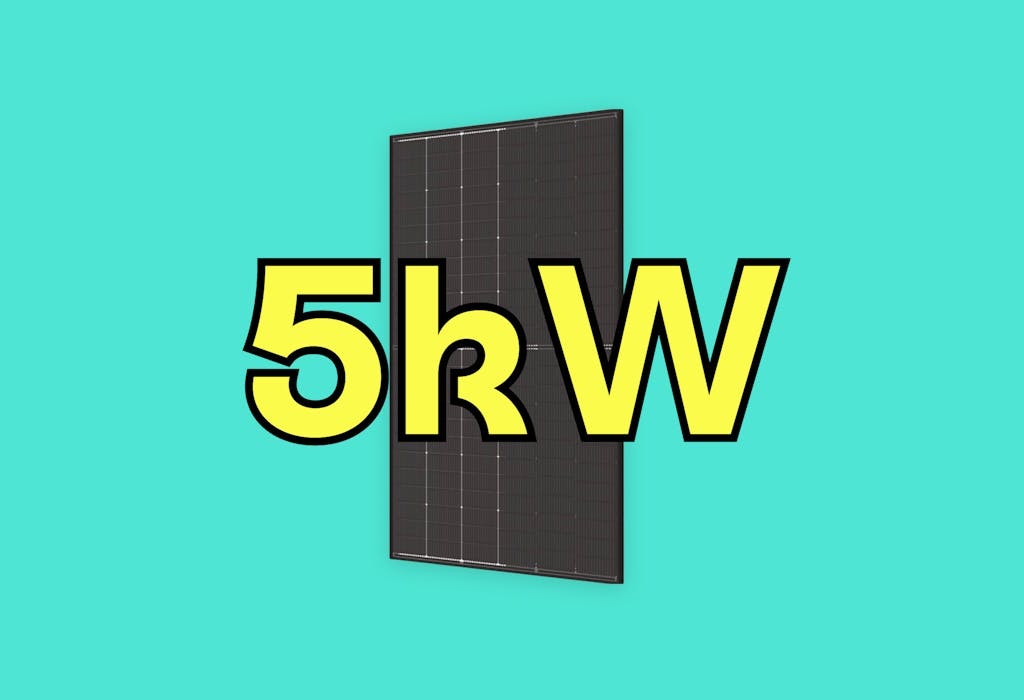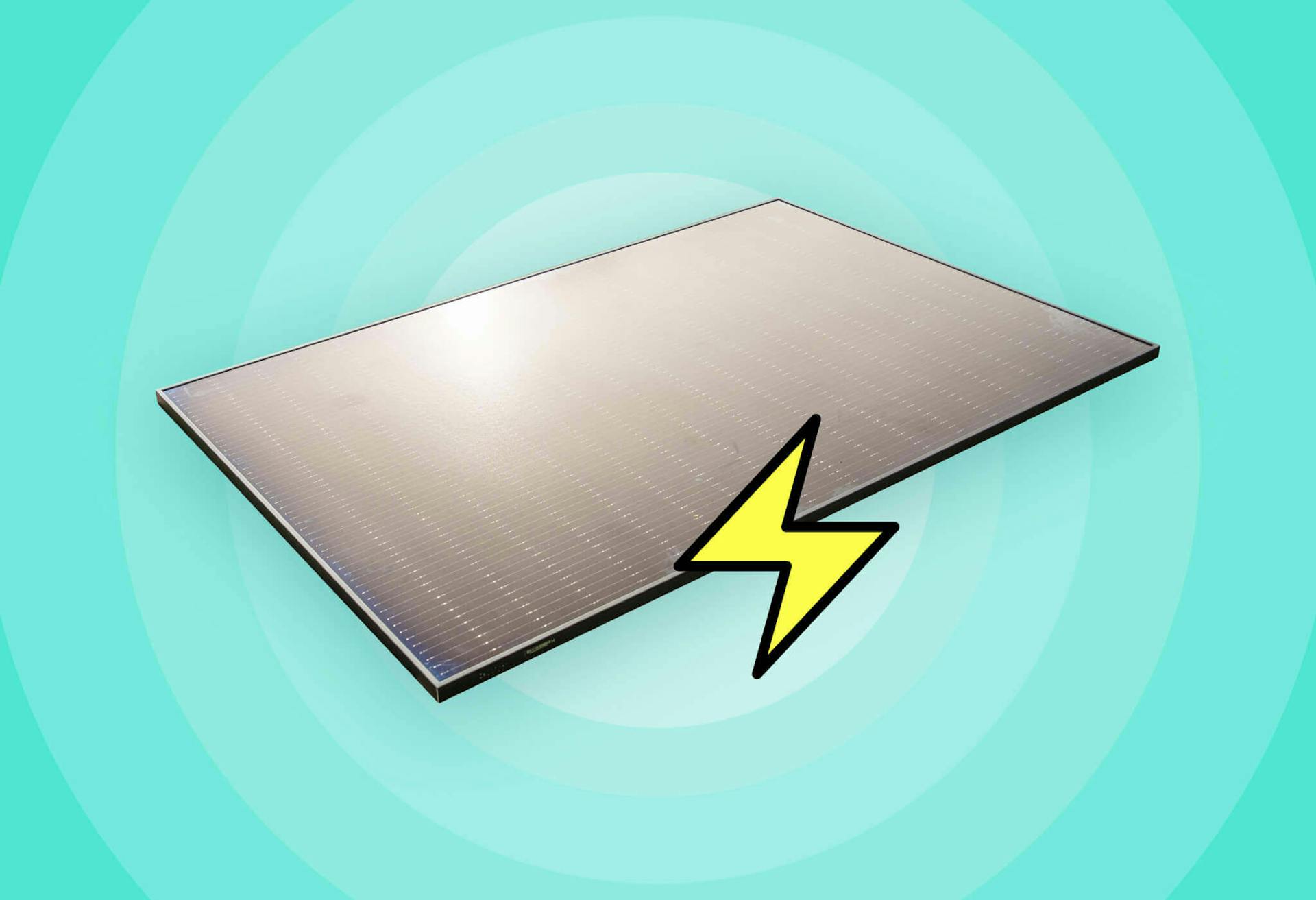- Solar advice hub
- System-size
- 3kW solar panel systems: an expert guide
3kW solar panel systems: an expert guide
In this guide, we’ll explain what a 3kW solar panel system is, how much it costs, and how many appliances it can power.


Why you can trust our content
We know that the solar industry is full of misinformation, but we only use reliable sources, including:
- Our experienced solar experts, installers and system designers
- Our own database of solar & battery system designs
- Authoritative bodies like MCS and the UK government




Calculate savings
What kind of home do you live in?
Calculate savings
What kind of home do you live in?
At a glance
When you’re purchasing a solar panel system, you want to ensure it’s the right size for your home.
A 3kW solar panel system can be the best choice for a two or three-bedroom household, but it depends on your present and future consumption, your location, and your roof, among other factors.
In this guide, we’ll explain what a 3kW solar panel system is, how much it typically costs, and how many of your appliances it can usually power.
If you would like to see how much you could save by getting a solar & battery system at no upfront cost, just answer a few quick questions below and we’ll provide an estimate.
Find out how much you can save
What kind of home do you live in?
What is a 3kW solar panel system?
A 3kW solar panel system has a peak output rating of three kilowatts, which means it generates 3,000 kilowatt-hours (kWh) of electricity per year in standard test conditions.
You can create a 3kW system by purchasing solar panels with power ratings that add up to 3,000 watts (W) when connected to each other – for example, seven panels that are all rated at 430W.
This doesn’t mean your system will automatically generate 3,000kWh per year, since solar panel output is affected by factors including your location, your roof’s angle and direction, and the standard of the installation.
You may also see a 3kW system referred to as a 3kWp (kilowatt peak) system. In this context, both terms have the same meaning.
How many solar panels are in a 3kW system?
How many solar panels you’ll need in order to construct a 3kW system will completely depend on your panels’ peak power ratings.
For example, if your installer only has 300W solar panels in stock, you’ll need 10 panels.
Or if you get 430W panels, you’ll have seven solar panels in your 3kW system.
Buying panels with higher peak output ratings can reduce the number of panels you need, which is an especially useful option for households with limited roof space.
What size battery should you add to a 3kW system?
You should typically get a 5kWh battery with a 3kW solar panel system.
This allows you to store your excess solar electricity all year round, to use after the sun goes down and when the sky is overcast.
You’ll power your home with more of the plentiful electricity your solar panels generate in spring and summer, then squeeze every last drop out of the energy they produce in autumn and winter, minimising waste and maximising your returns.
The size of battery you should get depends on multiple factors though, including how much electricity your household uses per day, and the shape of your annual consumption pattern.
For example, a bigger battery might be a good idea if the people in your household spend most of their time outside of the home while the sun’s up – for instance at school or work – as you won’t be able to use the majority of your solar electricity as your panels produce it.
On the other hand, if you have an electric vehicle and charger and drive more in the summer, you might use more solar electricity in those warmer months than during winter – which could mean you don’t need a larger battery.

What size inverter should you add to a 3kW system?
A 3kW system typically needs a 2kW inverter, as your solar panel system should be roughly 50% larger than your inverter, as a general rule.
This is largely due to the fact that in most UK locations, your solar panels won’t often reach their peak power rating, since our weather usually fails to match standard test conditions.
Standard test conditions involve a solar irradiance of 1,000W per m² and a cell temperature of 25°C, and is the way manufacturers across the industry measure a solar panel’s output.
The electricity generated by a 3kW system in the UK can still save you hundreds of pounds per year, but you won’t produce much beyond 3,000kWh per year, even in the sunniest regions.
And you should always choose an inverter size that matches your system’s actual output, rather than its ideal levels.
An inverter – like any electrical item – also needs power to function, called its 'startup voltage'. It should always be at this level at least, so getting a smaller size is also safer.
If you would like to see the savings you could get from a solar & battery system, just answer a few quick questions below, and we’ll calculate an estimate.
Find out how much you can save
What kind of home do you live in?
How much does a 3kW solar panel system cost?
A 3kW solar & battery system costs around £9,640 to buy and install.
That includes seven solar panels, each with a 450-watt peak power rating, and a 5kWh battery.
This final cost can vary substantially though, based on factors like where you live, the installer you choose, the type of roof you have, and the current state of the industry.
If you want to learn more, check out our full guide to solar panel costs.
How much energy will a 3kW solar panel system generate?
A 3kW solar panel system in the UK will produce an average annual output of around 2,550kWh, if it's dealing with typical UK irradiance.
This means you’ll usually produce roughly 85% of your system’s peak power output.
A solar panel system will usually generate less electricity in areas that receive less sunshine, such as Scotland or the northernmost parts of England, or more in a sunnier place like Cornwall, Devon, Dorset, Essex, Sussex, or – perhaps surprisingly – Liverpool.
For example, a 3.4kW system we designed for a London household has an estimated annual output of 3,092kWh, and our design for a 3.9kW array in Bristol would produce approximately 3,618kWh per year.
However, a 3kW design we put together for a property in Durham would generate roughly 2,129kWh per year.
What can a 3kW solar panel system run?
A 3kW solar panel system can run the average three-bedroom household, on a typical day.
It can generate 7kWh of solar electricity per day, on average.
This amount of electricity can power all of the devices below for the stated amount of time, according to Centre for Sustainable Energy data – with a little extra energy left over.
| Device | Time | kWh usage |
|---|---|---|
| Washing machine | 1 hour | 2.1 |
| Tumble dryer | 1 hour | 2.5 |
| Electric shower | 15 minutes | 0.22 |
| Hairdryer | 5 minutes | 0.15 |
| Oven | 30 minutes | 1.05 |
| Toaster | 2 minutes | 0.03 |
| Microwave | 5 minutes | 0.05 |
| TV | 2 hours | 0.24 |
| Games console | 1 hour | 0.12 |
| Laptop | 7 hours | 0.35 |
| 10-watt LED light bulbs | 10 hours | 0.14 |
| Total: 6.95 |
Is a 3kW solar panel system enough?
A 3kW solar panel system is enough for your household if it approximately matches your annual electricity consumption.
But you should always consider getting as large a solar panel system as your roof allows, if you can afford to.
The fixed prices of labour and scaffolding typically make up a large proportion of the price, so adding more panels doesn’t raise the overall cost by much, which means it makes financial sense to fill up your roof – unless this would mean extra scaffolding.
Choosing a bigger system and one of the best export tariffs around will help you to save even more money – and could prepare your household for any future increases in your electricity consumption.
If you’re considering getting a heat pump, buying an electric car, or welcoming a new addition to your family at some point, a larger solar panel system can help lessen the impact.
It’ll cost more to add more solar panels at a later date, as you’ll have to pay the additional costs – like scaffolding – all over again, so it pays to plan ahead.
How much space do you need for a 3kW solar panel system?
You’ll typically need 22.85 square metres (m²) of roof space for a 3kW solar panel system.
This takes into account the average height and width of a solar panel – which combine for a total size of around two square metres – plus the additional space installers tend to leave.
Your installer will generally ensure there’s a 40cm space between the panels and your roof’s sides, and a 3cm gap between the panels themselves, to match the standards created by bodies like Flexi-Orb and Microgeneration Certification Scheme (MCS).
If you have a vent pipe, chimney, or skylight (also known as a Velux window), you’ll need more roof space – but not much.
If you have all three, you’ll usually require another 0.81m², for a total of 23.66m².
Is a 3kW solar panel system worth it?
A 3kW solar panel system is absolutely worth it, so long as it’s properly sized for your household.
If so, it’ll benefit you in multiple ways. You’ll cut your electricity bills by 82%*, on average, if you use one of the best export tariffs, which pays you for the excess solar electricity you send to the grid.
You’ll also cut your carbon footprint by 1.1 tonnes of CO2 per year, on average - or 31%. This is based on a database of 32 solar & battery systems designed by Sunsave, located across England and Wales. Each system uses 430W solar panels and a 5.8kWh battery.
And it's a reduction of 31% because the average UK household's carbon footprint is 3.5 tonnes per year. This figure is based on a government report that households account for 26% of the UK’s carbon footprint , the country’s latest emissions total of 384.2 million tonnes , and the fact that there are 28.2 million households across the nation at the last count.
So you'll reduce your reliance on the grid, which can help lessen the impact of energy price cap rises.
Across 25 years of enjoying all these advantages, the average owner of a 3kW system can expect to save tens of thousands of pounds over the solar panels’ lifespan.
And a 3kW system usually boosts your Energy Performance Certificate rating by a grade, which can increase your home’s value. For instance, in research from 2023, Rightmove found that increasing a property’s EPC from a D to C lifts its value by 3% (or £11,157), on average.
*Our savings estimates are based on a household experiencing average UK irradiance with a 3.5kWp solar panel system and a 5.2kWh battery, using 3,500kWh of electricity each year and signed up to the Intelligent Octopus Flux export tariff.
Do you need planning permission for a 3kW solar panel system?
You don’t usually need planning permission to install residential solar panels, including 3kW systems.
Domestic solar installations almost always fall under permitted development rights, which allow homeowners to carry out medium-sized improvements without planning permission.
You’ll typically only have to apply for permission if you live in a flat, listed building, or conservation area – or if you’re looking to install a ground-mounted system.
Your installer will need to send a G99 application to your area’s Distribution Network Operator (DNO) if your inverter’s maximum capacity is more than 3.68kW on a single-phase system.
This is rare with a 3kW installation, as your solar panel system should generally be around 50% bigger than your inverter, but some installers prefer to get a larger inverter.
If it is required, a G99 application should be a simple formality that ensures the DNO is aware of your system, and able to use that information to run its grid properly.
If you choose to switch to solar with Sunsave, we will take care of the whole G99 application process for you.
Can you get an off-grid 3kW solar panel system?
You can certainly get a 3kW off-grid solar panel system installed, and in most scenarios, it’ll provide a significant proportion of the electricity you need.
Since you won’t be connected to the grid, you won’t be able to export any excess energy, so your focus will be on buying a large battery to store as much electricity as you can.
A 8-9kWh battery will likely meet your needs, depending on where you settle down and your group’s electricity usage.
You may also want to add other sources of renewable energy alongside your solar panel system, like a wind turbine.
A 3kW solar panel system will only provide you with enough electricity to live off-grid if you can be careful with your consumption and use significantly less energy in winter.
Summary
A 3kW solar panel system is a standard size for a household with two or three bedrooms, and can massively cut your electricity bills.
However, most homes don’t match ‘the average’, so you should base the size of your system on your current and future electricity consumption, not industry averages.
The best way to get the right size of solar panel system for your home is to choose a solar panel company with the relevant expertise, abilities, and accreditations, like Sunsave.
If you’re interested in how much you could save with a solar & battery system, simply answer a few quick questions below, and we’ll calculate an estimate.
Find out how much you can save
What kind of home do you live in?
3kW solar panel system: FAQs
Related articles

Written byJosh Jackman
Josh has written about the rapid rise of home solar for the past six years. His data-driven work has been featured in United Nations and World Health Organisation documents, as well as publications including The Eco Experts, Financial Times, The Independent, The Telegraph, The Times, and The Sun. Josh has also been interviewed as a renewables expert on BBC One’s Rip-Off Britain, ITV1’s Tonight show, and BBC Radio 4 and 5.


